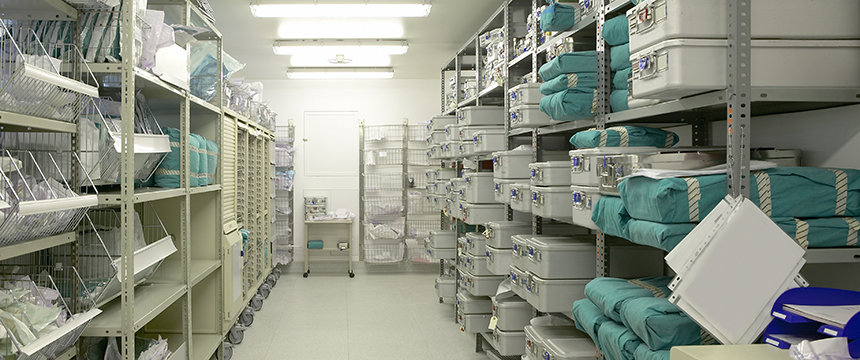Government Seizure of Medical Supplies from Health Care Providers – Is It Legal?

Recent reports indicate that the federal government has been seizing medical equipment and supplies from hospitals across the country in its response to COVID-19. The issue for hospitals and other health care providers, including suppliers, is whether the federal or state governments have the power to seize such critical supplies during the pandemic and what rights hospitals and health care providers might have to challenge any such seizures. The answers may be different depending on who is doing the seizing.
This article provides a high-level discussion of the complex and rapidly-changing issues related to the government’s ability to commandeer medical supplies during the COVID-19 public health emergency.
The Federal Government’s Power to Commandeer
Because the federal government has limited, enumerated powers, neither it nor the President has clear authority to seize private medical equipment and supplies for public use.
On March 18, 2020, President Trump issued Executive Order 13909, invoking his authority under the Defense Production Act (50 U.S.C.A. § 4501, et seq.) (the “DPA”) to require performance of contracts and “to allocate materials . . . as he . . . deem[s] necessary or appropriate to promote national defense.” 50 U.S.C.A. § 4511(a). Under the DPA, the President’s power is limited to allocating scarce materials and taking priority over others for materials, and redirecting supplies or materials used in the production of goods needed for the national defense from one producer to another. Contrary to powers regarding “production,” the DPA does not expressly authorize the President to seize private property, and in fact the scope of the President’s powers under the DPA has been restricted since the Act was first passed in 1950. Even if the President were to receive Congressional authority to seize property, the government must pay fair market value for the seized property, and failure to do so would arguably violate the Fifth Amendment.
State Authority to Commandeer
Unlike the federal authority, governors are vested with broad powers under various state-specific laws. In our federalist system, the states are vested with the broad police powers of government, which includes the ability to establish and enforce laws to protect the health, safety, and welfare of the public. We are aware of several states in which governors have been authorized, either through the respective state’s constitution or statutes, to commandeer or seize private property in certain, often emergent, situations. Because of the greater flexibility afforded to the states through their broad police powers, it is possible that such seizing of private property, even if challenged, could be upheld. It is often difficult to predict how a given court may interpret questions regarding such seizures as most, if not all, of the state laws authorizing government seizures have never been challenged. But that does not mean that state seizure authority is limitless.
In response to COVID-19, several states have issued orders authorizing the governor and/or other designated officials to commandeer or seize medical supplies and equipment from private health care entities. For example, on April 9, 2020, Pennsylvania Governor Wolf issued an order authorizing the Pennsylvania Emergency Management Agency to commandeer personal protective equipment (“PPE”), pharmaceuticals, and other necessary medical resources from all private, public, and quasi-public health care providers, as well as manufacturers and suppliers, and transfer these supplies to another facility in need. The Commonwealth will then pay for the items seized at a rate of the average price at which the same or similar consumer goods or services were obtained during the week prior to March 6, 2020.
Each state’s laws and orders relating to seizure of medical supplies are quite nuanced, and new legal developments are occurring daily as the COVID-19 emergency continues to unfold. As a related issue, there have been numerous anti-hoarding laws and regulations enacted, and the first federal prosecutions have recently commenced. We anticipate that as COVID-19 continues to impact our nation, many more states will issue orders authorizing the seizure of medical supplies in an attempt to ensure frontline health care providers have the supplies they need.
You should be aware of these issues if you receive a direct request for supplies or even a call from a state or federal official seeking to “audit” your level of supplies. You should also ensure that the materials you have on hand are reasonably related to your actual needs, to avoid hoarding concerns. Navigating these issues successfully requires a sound understanding of the facts, the applicable laws, and how they apply to your business. We recommend contacting your Foley relationship partner or one of the Foley colleagues below to assist in navigating these complex issues.
Foley has created a multi-disciplinary and multi-jurisdictional team to respond to COVID-19. We have prepared a wealth of topical client resources and are prepared to help our clients meet the legal and business challenges that the ongoing pandemic is creating for stakeholders across a range of industries. Click here for Foley’s Coronavirus Resource Center to stay apprised of relevant developments, insights, and resources to support your business during this challenging time. To receive this content directly in your inbox, click here and submit the form.





